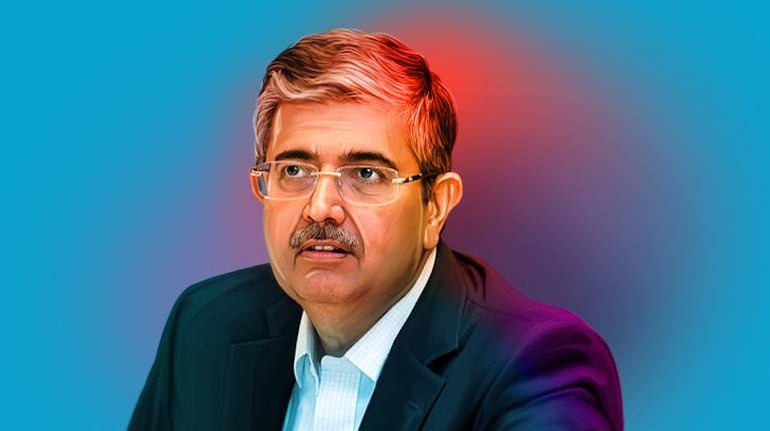
The arrest of Jet Airways founder Naresh Goyal by the Enforcement Directorate (ED), in connection with an alleged loan fraud, brings into stark relief the achievements of another 1990s entrepreneur who hung up his boots on the same day. Uday Kotak has had his share of run-ins with the banking regulator Reserve Bank of India (RBI) over bringing down his stake in Kotak Bank to the required level as well as the cap on his term as MD and CEO. But not a whiff of scandal nor a trace of a scam tars his 38-year long career as a first-generation business leader.
It's a record to be proud of. The list of businesses that shone bright through the 1990s and early 2000s only to crash land amidst a welter of financial misdeeds, is long and getting longer. From Kingfisher to DHFL, Videocon to Sahara, starting a business has proved to have little connection with building it to last.
Kotak is a rare example of one who did just that, building a financial services powerhouse that is here to stay. His tenure has been marked by high standards of personal and institutional ethics, an adherence to corporate governance norms and extreme financial prudence, even if in a recent interview he appeared to regret the cautious stance the bank took after the financial crisis of 2008. While it is true that other banks like ICICI Bank and Yes Bank saw the crisis as an opportunity and the ensuing credit squeeze as a signal to go into lending hyperdrive, it is surprising that the veteran banker didn't point to where the lending spree landed both banks.
But while Kotak has earned himself the right to be considered one of India's foremost bankers, an evaluation of his legacy must not stop at that. For it is his role as an entrepreneur that is even more significant.
The late 1980s when Kotak was starting out of his tiny three-person office in Mumbai was a period of enormous social and political ferment in India. Three governments in less than two years brought with it enormous political uncertainty. But it was also a period when the first green shoots of an economic resurgence were becoming visible. India's GDP growth rose to over 5.6 percent for the decade, finally putting at rest the ignominy of the 4 percent Hindu rate of growth over the previous three decades. Key to this was private capital investment which grew at a healthy clip.
In an effort to capitalize on this, a clutch of non-banking financial companies (NBFCs) sprang up to offer companies and individuals what the banks couldn't or wouldn't. The number of NBFCs in the country quadrupled between the start of the 1980s and by the time the 1991 reforms had been rolled out, as every large business house in the country along with many first timers rushed to grab the opportunity. It was too good to last and as the inevitable excesses took over, the RBI was forced to step in and regulate the industry.
Over the next five years many of these NBFCs crashed, brought down by avarice or incompetence or both.
Despite setbacks, Kotak’s financial services business not only survived the carnage but emerged stronger to be one of the two private companies - Yes Bank was the other - to get a licence for banking in 2003-04. Indeed, a look at the first 12 banks that came into existence after the 1991 reforms reveals how Kotak Bank along with HDFC Bank were outperformers as compared to others like Global Trust Bank Ltd, ICICI Bank Ltd, UTI Bank Ltd (renamed Axis Bank Ltd), Bank of Punjab, IndusInd Bank Ltd, Centurion Bank Ltd, IDBI Bank Ltd, Times Bank and Development Credit Bank Ltd.
One reason for this success has been Kotak’s ability to put together a strong team at the top, one moreover which has stayed with the bank from the earliest years. Of the two likely to succeed him as CEO, Shanti Ekambaram has been with the bank for 26 years while KVS Manian, who played a major role in its evolution from a NBFC, has been with it for 28 years. Dipak Gupta, the interim MD and CEO is another 25-year veteran of the bank. The presence of such professionals, as well as a few others like Shivaji Dam, now with the Kotak Education Foundation, meant that there was consistent compounding at the institution.
Entrepreneurial leadership is also, as Kotak has shown, is about knowing when to let go.
Sundeep Khanna is a senior journalist and the author of the recently released book Cryptostorm: How India became ground zero of a financial revolution. Views are personal, and do not represent the stand of this publication.
Discover the latest business news, Sensex, and Nifty updates. Obtain Personal Finance insights, tax queries, and expert opinions on Moneycontrol or download the Moneycontrol App to stay updated!

Moneycontrol Pro Panorama | DPI, UPI, AI and finding a tech Neverland
Sep 8, 2023 / 02:38 PM IST
In this edition of Moneycontrol Pro Panorama: China's dam in Tibet proves costly for India, cries about AI safety gains momentum, ...
Read Now
Moneycontrol Pro Weekender: The road to 2047
Aug 12, 2023 / 10:56 AM IST
According to an RBI study, we need to grow real GDP by 7.6 percent per annum to be a developed economy. And that target is eminent...
Read Now